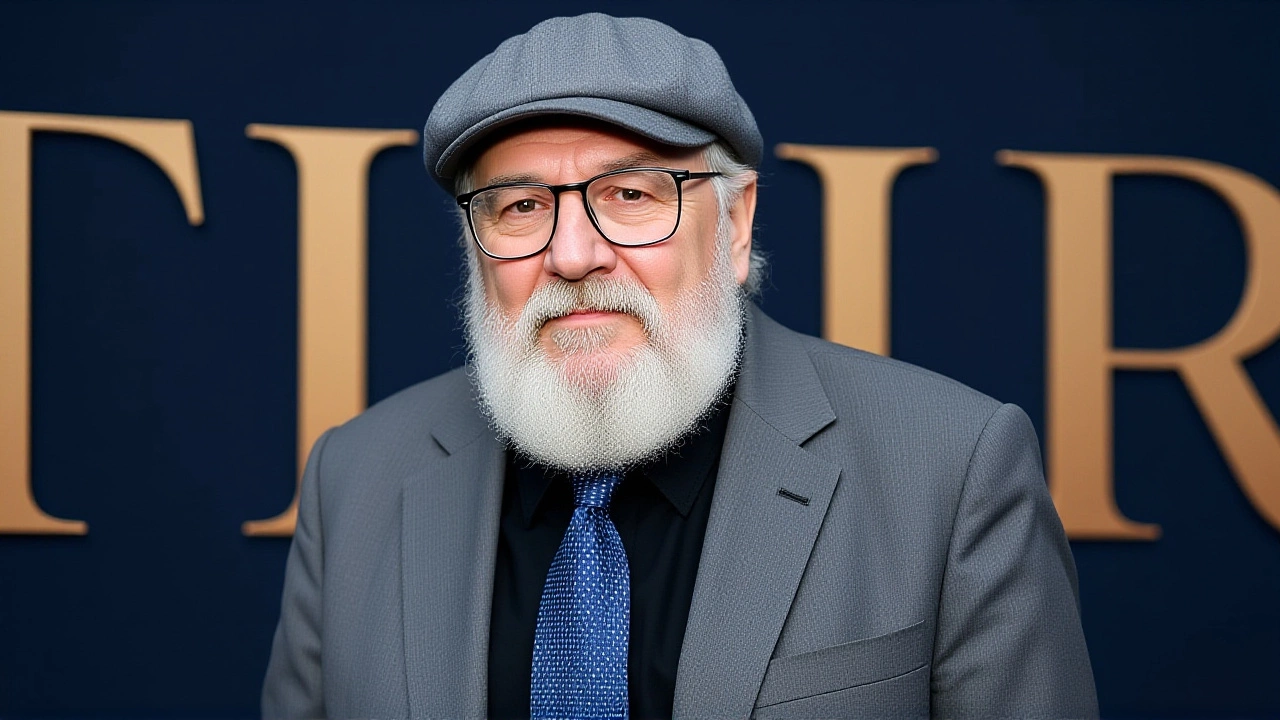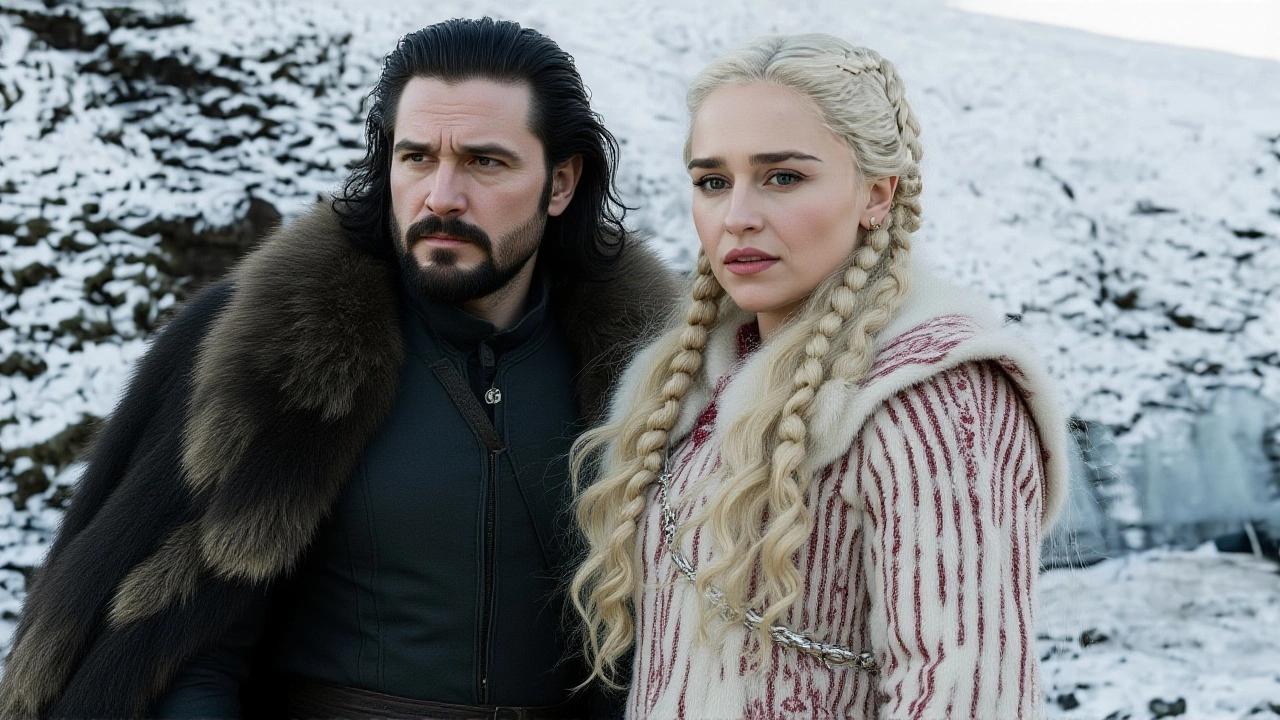When George R.R. Martin dropped the news in a quiet interview last week, fans didn’t just cheer—they started counting the days. HBO has officially greenlit another Game of Thrones sequel series, joining the already-renewed House of the Dragon and A Knight of the Seven Kingdoms in a sprawling, multi-year expansion that will keep Westeros alive through 2028. The confirmation, announced November 23, 2024, isn’t just more content—it’s a strategic bet that the fantasy empire Martin built still has more blood, fire, and dragons to give.
The New Series and the Renewals
Let’s get the facts straight: House of the Dragon is coming back for its fourth and final season in 2028, with Season 3 already locked in for summer 2026. Meanwhile, A Knight of the Seven Kingdoms, based on Martin’s beloved Dunk and Egg novellas, will return for Season 2 in 2027 after its debut in January 2025. But the real bombshell? Martin revealed HBO is developing a third new series—its first time ever releasing two Game of Thrones-branded shows in the same year. Details are scarce, but insiders say it’s not a Jon Snow reboot. That project, reportedly in development for over a year, was shelved after creative teams couldn’t agree on how to handle Jon’s post-Battle of Winterfell arc. "We loved Jon," one executive told The Hollywood Reporter, "but we couldn’t find a story that felt true to him, not just fan service."
Enter the new mystery series. Martin, who serves as co-creator and executive producer on all three shows, hinted it would explore a "lesser-known corner" of Westeros—possibly the Free Cities, the Stepstones, or even the mysterious lands beyond the Wall that even the Night’s Watch never fully mapped. "There are stories in the margins," he said. "People forget that the Targaryens didn’t just rule from King’s Landing. They ruled from Dragonstone, from Volantis, from the ruins of Valyria. There’s still so much to tell."
Why This Matters Now
The timing isn’t random. House of the Dragon premiered in August 2022 and shattered records, drawing 22 million global viewers in its first week—HBO’s biggest series launch ever. That success didn’t fade. Season 2, which aired in 2024, averaged 18.7 million viewers per episode across HBO Max and linear channels, according to Warner Bros. Discovery’s internal metrics. Meanwhile, A Knight of the Seven Kingdoms has already generated buzz for its grounded, medieval tone, a deliberate contrast to the high-stakes politics of the Targaryen civil war.
Franchise economics are just as compelling. MoffettNathanson Research projected in October 2023 that the expanded Game of Thrones universe could generate $4.2 billion in revenue between 2022 and 2028—63% higher than initial estimates. That’s subscription growth, licensing deals, merchandise, and even theme park tie-ins. HBO isn’t just making TV. It’s building a cultural institution.

Who’s Behind the Scenes
Behind the curtain, the team is stacked. Ryan Condal remains showrunner for House of the Dragon, joined by executive producers Sara Hess and Melissa Bernstein. For A Knight of the Seven Kingdoms, Ira Parker is at the helm, with directors Owen Harris and Sarah Adina Smith bringing a tactile, almost documentary-like realism to the 100-year-old prequel. The casting choices so far—especially the young actors playing Ser Duncan the Tall and Egg—have drawn comparisons to the early days of Game of Thrones, where unknowns became icons.
The Bigger Picture: Westeros as a Living World
What’s happening here isn’t just TV. It’s the evolution of a mythos. After the original Game of Thrones ended in 2019, fans were divided. Some called it a betrayal. Others just missed the world. HBO’s answer? Don’t chase closure. Chase continuity. By spreading the timeline across centuries—Dunk and Egg in the 100s AC, House of the Dragon in the 120s AC, and the new series likely set even earlier or in distant lands—HBO is turning Westeros into something like Middle-earth: a universe with its own history, languages, and legends.
And it’s working. According to HBO’s internal data, 32.8 million viewers watched the final season of the original series in May 2019. That audience hasn’t disappeared. It’s just waiting. And now, with new stories dropping every year through 2028, they won’t have to wait long.

What’s Next?
The next 18 months are critical. January 2025 brings A Knight of the Seven Kingdoms—a chance to prove the formula works beyond dragons and court intrigue. Summer 2026? That’s when House of the Dragon returns with its most explosive battles yet, rumored to include the full-scale war between Rhaenyra and Aegon II. And by late 2025, HBO will likely unveil the title and teaser for the third new series. Will it be a prequel? A spin-off? A story set during the Doom of Valyria? The speculation is already wild.
One thing’s certain: George R.R. Martin’s world is no longer a TV show. It’s a legacy.
Frequently Asked Questions
Why did HBO cancel the Jon Snow sequel series?
HBO shelved the Jon Snow sequel after over a year of development because creators couldn’t agree on how to portray his post-Battle of Winterfell arc. While fans wanted redemption or a quiet life, the writers struggled to find a narrative that felt authentic without retreading old ground. The decision was ultimately made to avoid fan-service storytelling and focus on unexplored corners of Westeros instead.
How many Game of Thrones series are now in production?
HBO has three active Game of Thrones-branded series in development: House of the Dragon (Season 3 in 2026, Season 4 in 2028), A Knight of the Seven Kingdoms (Season 1 in 2025, Season 2 in 2027), and a third, unnamed sequel series confirmed by George R.R. Martin. This marks the first time HBO will release more than one new Game of Thrones series in the same year.
What’s the projected financial impact of this expansion?
Industry analysts at MoffettNathanson Research estimate the expanded franchise will generate approximately $4.2 billion in cumulative revenue between 2022 and 2028. This includes streaming subscriptions, global licensing, merchandise, and digital content. The success of House of the Dragon alone—22 million viewers in its first week—proved the audience appetite, making this multi-year investment one of HBO’s most lucrative bets ever.
Is George R.R. Martin writing all the new series?
Martin is credited as co-creator and executive producer on all three series, but he’s not writing every episode. He’s provided source material, world-building notes, and story arcs—especially for the Dunk and Egg stories. The new series, however, is being developed by a team of writers under his supervision. He’s described it as "a story I’ve been thinking about since the 1980s," but not one he’s ever written down.
Will any original cast members return?
So far, no official returns from the original Game of Thrones cast have been announced. However, Martin hinted that "legacy characters" might appear in flashbacks or archival footage, especially in House of the Dragon’s final season. For the new series, HBO is focusing on fresh faces, mirroring how the original series launched with unknowns. But don’t be surprised if a familiar face shows up in a cameo—like a 90-year-old Tyrion recounting tales to a young squire.
Why is HBO investing so heavily in Westeros now?
Because the audience is still there—and hungry. After the original series ended, Game of Thrones remained the most-streamed fantasy show globally for five years. With streaming competition fiercer than ever, HBO needs flagship franchises. Westeros is the only fantasy world with built-in lore, fan loyalty, and merchandising power that rivals Star Wars. HBO isn’t just making shows. It’s preserving a cultural asset.





